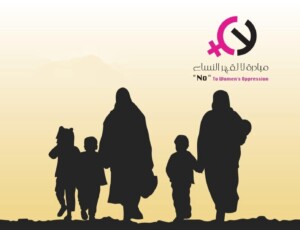UN allocates $21 million for humanitarian aid in Sudan
Through the Sudan Humanitarian Fund, the UN has allocated $21 million for humanitarian assistance across Sudan in 2017. Global financial support for aid in Sudan however, is expected to drop this year.
Through the Sudan Humanitarian Fund, the UN has allocated $21 million to help thousands of people in need of humanitarian assistance across Sudan in 2017. Global financial support for humanitarian work in Sudan however, is expected to drop this year, despite improved aid access and the easing of US sanctions.
The humanitarian challenges in Sudan are diverse and complex, including in Darfur where more than three million people are estimated to be in need of humanitarian assistance, the UN Office for the Coordination of Humanitarian Affairs (OCHA) says in a statement today.
“The SHF will continue to support the front-line responders in Sudan, the organisations working to provide relief every day, especially to the most vulnerable, such as women and children,” said Marta Ruedas, Resident and Humanitarian Coordinator in Sudan.
The SHF, a multi-donor fund that responds to critical humanitarian needs in Sudan, focuses on providing emergency assistance to displaced people, refugees, and returnees.
Funds to the SHF for this allocation have been donated by the governments of Denmark, Norway, Sweden, Switzerland, Ireland, and the United Kingdom. Over $5 million of this $21 million represent multi-year contributions, which will facilitate multi-year planning.
The SHF draws on alternative approaches to humanitarian assistance. For example, the SHF funds projects that provide cash to vulnerable people who have been displaced for long periods of time, instead of in-kind aid, thus allowing individuals to procure what they need themselves.
The needs of people returning to their homes following displacement are also prioritised by the SHF. By focusing on protracted displacement and returnees, the fund aims to strengthen the link between humanitarian response and long-term development and peace-building initiatives.
Since 2006, the SHF has received and granted over $1 billion to international and national NGOs, and UN agencies, funds and programmes, enabling these entities to provide relief to people in need. In 2016, the SHF allocated $38.8, which represented about eight percent of the overall funding available to humanitarian partners.
Drop in support
Global financial support for humanitarian work in Sudan however is expected to drop this year, despite improved aid access and the easing of US sanctions, Ruedas told AFP in an interview in Khartoum on 14 February.
“Sudan is taking some very positive steps which are recognised, and… normally that would need to be recognised also by increased funding,” she said. “Yet the surrounding financial environment is one where I’m afraid that it’s going to be rather a decrease in funding.”
Ruadas pointed here to Washington’s decision to revoke parts of a trade embargo against Sudan on 13 January. Comprehensive economic sanctions were imposed in 1997 because of Sudan’s alleged support for Islamist groups.
“The easing of sanctions is a significant step toward generating a new relationship with more trust,” Ruedas told AFP.
But “overall funding is going down for the UN, for humanitarian aid, for development aid”.
The UN raised more than 55 percent of a $ 952 million international appeal it launched to for the 2016 humanitarian plan that targeted 4.6 million people across Sudan, while this year they aim to reach around three million.
The UN is already considering pitching a lower aid appeal for 2017, Ruedas said, adding the final appeal was still being worked out.
Funding concerns have also risen after reports that President Donald Trump’s administration was mulling a 40 percent cut in voluntary US funding for UN agencies. The USA is the largest donor to Sudan, with more than $270 million contributed in humanitarian assistance in 2016, and more than $1.7 billion since 2011.
“Any decrease in US funding to the UN and our humanitarian work in Sudan would have a significant impact on the millions of people in need across the country,” Ruedas said. “Sudan still needs hundreds of millions of dollars in assistance.”











 and then
and then